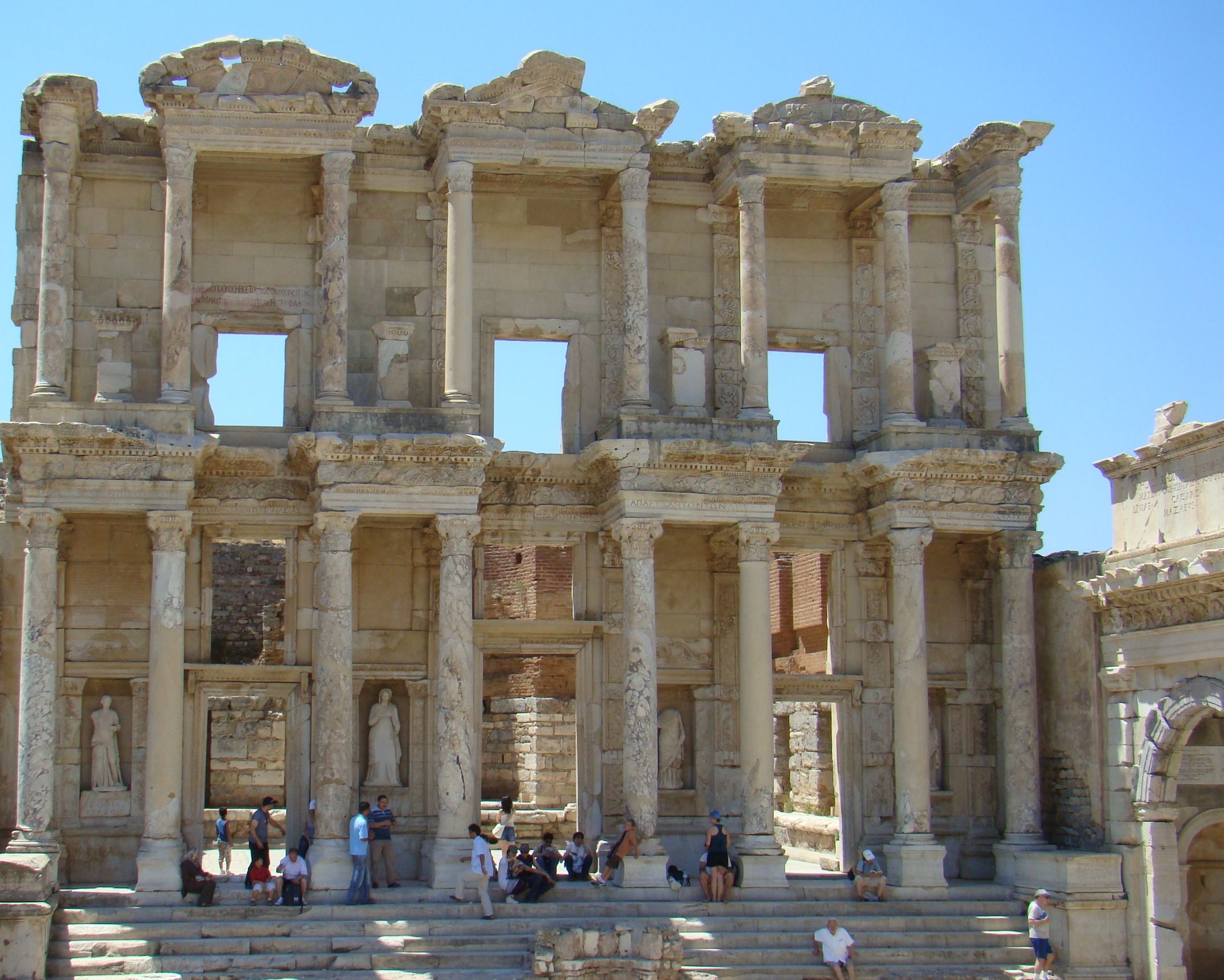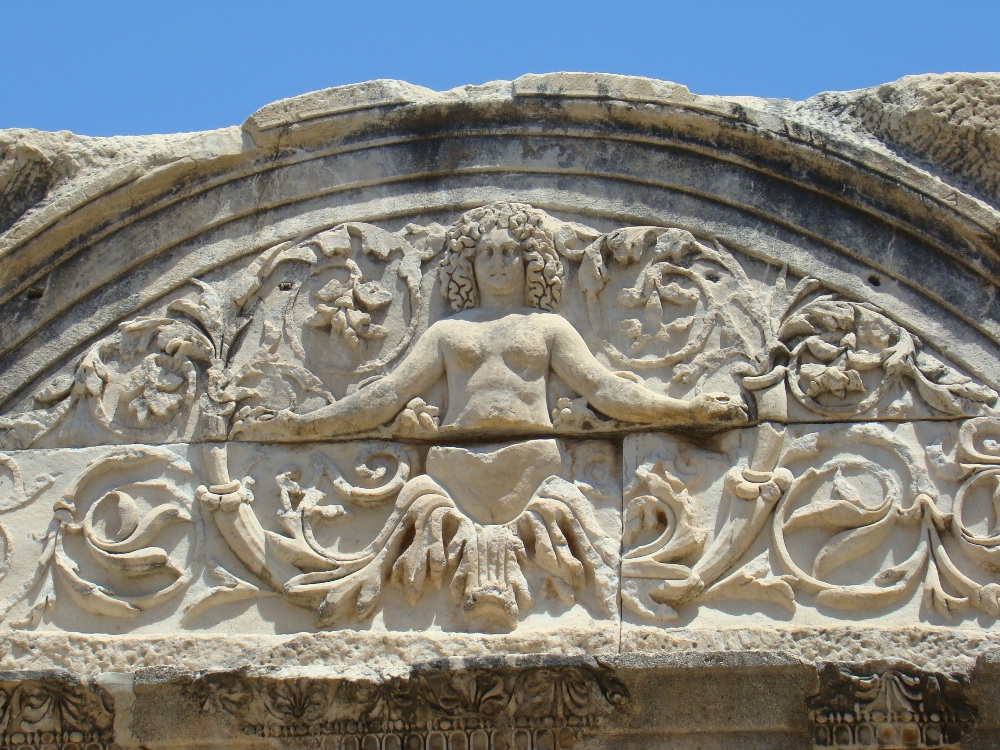You probably have seen this façade in photos if not been there yourself, but do you know who built it and why?
 The Library at Ephesus.
The Library at Ephesus.
“Turkey has excellent ancient Greek and Roman ruins, the epitome being the library façade at Ephesus, or, I must say, all of Ephesus. Ephesus represents a vibrant, exuberant life that fully encompassed body, soul, and mind. Spiritually, it ranged from ancient Greek, Roman, and Egyptian gods and goddesses to Christian saints and Islamic mosques. Architecturally, there were brothels, baths, and conduits through which wine flowed to the homes of the wealthy on the hill as water did for those less opulent; a massive theater, stadium, and, of course, the library façade. Artistically, I saw sensual murals and delicately carved statues of such formidable gods and personages as Zeus and Socrates.”

Detail from one of the buildings at Ephesus.
“The library was built by the son of Tiberius Julius Celsus Polemaeanus, who was proconsul of the Roman’s Asian province of which Ephesus was the capital, between 114 to 117 CE to honor, and as a mausoleum for his father. Inscriptions honor the characteristics of wisdom, intelligence, knowledge, and virtue. But even this rich, diverse civilization was not enough to withstand either barbarians or nature. The value of Ephesus was lost on the Goths, who readily sacked the place in 262 CE, burning scrolls, looting, and raping their way through civilization. We can put the blame for the destruction of the library on their muscular, hairy shoulders, and the city never again regained its splendor. But the Goths weren’t the only ones to have a major impact on the city’s destruction. In spite of Roman engineering and ingenuity, the harbor kept silting in so that the city actually moved five times before its final destruction by barbaric hands.” [Excerpts from Voice of a Voyage]